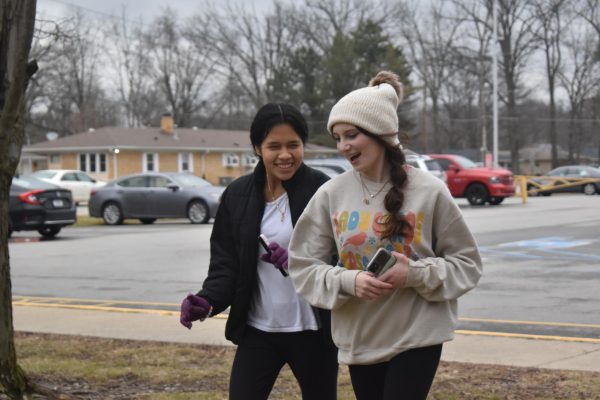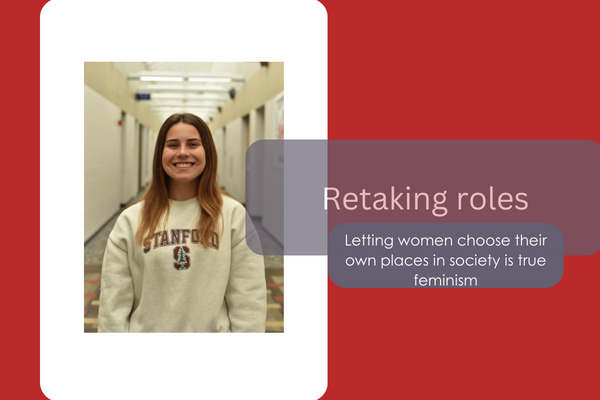The uncomfortable truth
Freshman makes her safety a priority

Freshman Regina Arnett remembers riding her bike at night when she was younger. Before she could go, her mom rushed her inside and told her to change into pants instead of a skirt, fearing what harm men could possibly do to her. Arnett was five when this happened. It started with a simple change of clothing and changed to a fear for her life as she’s grown up.
“I was just like ‘Why?’” Arnett said. “I didn’t understand it because I was just young.”
In order to feel safe, Arnett has had to swallow the uncomfortable truth. She is more prone to violence as a woman and a woman of color.
According to The National Organization for Women, young women, low-income women and some minority women are disproportionately likely to be victims of domestic violence and rape.
School counselor Margaret Tidrow believes that women are attacked so often because society sees them as weaker.
“Typically, women aren’t seen as being as strong as men,” Tidrow said. “When attackers see women walking down the street, they think of them as an easy target.”
While having to change out of her skirt to ride her bike was one of the earliest incidents of feeling uncomfortable around men, it hasn’t been the only time.
When she was in fifth grade, a boy inappropriately touched her simply because his friends dared him to. And just recently, Arnett was at the store and a man significantly older than her randomly walked up to her and shook her hand and started conversation with her.
“I always think of the possibility that men around me could be misogynistic and racially target me too,” Arnett said.
Growing up, her brothers would always teach her to be aware of her surroundings and how to defend herself in case something were to happen. They would hang a ball and have her punch it for hours. They would teach her how to punch properly with her knuckles, not her fingers.
Arnett believes self-defense is important for women to be thinking about because she thinks that in today’s culture, it is more common for women to go out alone, but it isn’t any safer.
She also thinks that if more men simply paid more attention to the threat some women feel they are under, it would help improve the situation.
Arnett’s tips for women who worry about their safety are just the basics of self-defense– always be aware of one’s surroundings, use one’s elbow when they can, hit pressure points and, if attacked, grab the attacker’s ears.
While Tidrow thinks self-defense is important to know in the practical sense, she also feels that knowing how to defend oneself is also very self-assuring.
“I think it’s very empowering to know that if I’m ever in that position, that I can take care of myself,” Tidrow said.
Ever since that first memory of having to fear men when Arnett was five, she has always strongly believed in the importance of knowing self-defense.
“There’s a lot of people out there who can overpower women,” Arnett said. “Knowing how to take control of the situation can prevent a lot of bad things from happening.”

Hey, It’s Owen Hodges back again for my third and final year as a Managing Editor. Last year, I was Features Editor, and the year before that I was a...











